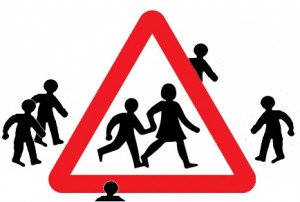 A series of actions over the last month highlight the tougher environment that is being created for independent schools that flout directives and guidance of various public agencies. Although encouraged by the increased seriousness with which rule breaking by the schools is being treated, the Accord Coalition continues to urge for bodies, such as Ofsted, to be granted improved powers to investigate the institutions.
A series of actions over the last month highlight the tougher environment that is being created for independent schools that flout directives and guidance of various public agencies. Although encouraged by the increased seriousness with which rule breaking by the schools is being treated, the Accord Coalition continues to urge for bodies, such as Ofsted, to be granted improved powers to investigate the institutions.
Recent examples of public bodies taking rule breaking more seriously include the Charity Commission, who last month announced that it would be holding an inquiry into the charity that operates Rabia School in Luton, for breaching operating conditions imposed on the school by the Department for Education. The school has persistently failed to meet the Independent Schools Standards and, in May 2020, the charity and its chair were convicted after the faith school continued to admit new pupils, against the instruction of the Secretary of State for Education.
Elsewhere, The Vine Christian school in Berkshire was last month found to be teaching creationism in science, which goes against the Department for Education’s Independent School Standards guidance. The guidance notes that “independent schools may teach creationism as part of a belief system but it should not be presented as having a similar or superior evidence base to scientific theories.” In response a Department spokesperson has told The i that the school “has failed to meet the independent school standards – and despite giving them time to improve they have not been able to do so. We are now discussing next steps, including deregistration.”
Meanwhile, Ampleforth College in North Yorkshire has been told by the Department for Education that it must not admit new pupils whilst it continues to fail to adhere to various Independent School Standards. The prestigious Catholic day and boarding school is one of several independent schools to have received an enforcement letter from the Department for Education last month. In the letter to Ampleforth College, the Department reveals concerns about “safeguarding and leadership and management” which, in the view of the Education Secretary, were “very serious”. It follows a 2018 report into the school by the Independent Inquiry into Child Sexual Abuse which found “… appalling sexual abuse [was] inflicted over decades on children aged as young as seven at Ampleforth.”
Lastly, Ofsted has again complained that weaknesses in legislation is preventing it from dealing with illegally unregistered schools which seek to evade scrutiny. In her latest annual report published this week, Ofsted Chief Inspector Amanda Spielman, praised the efforts of the inspectorate which during the review period led to three convictions for operating an unregistered schools, but warned “… there is no room for complacency or inaction. Thousands of children in unregistered schools are still out of reach because of weaknesses in legislation and in our investigative powers.”
Chair of the Accord Coalition, the Revd Stephen Terry, said ‘There are glaring weaknesses in the regulation of independent schools, and Accord continues to urge the Government to fulfil earlier commitments to close loopholes that are being exploited. Many illegally unregistered schools have been found to break basic health and safety regulations, and to not provide pupils with a curriculum that prepares them for life in a diverse society.’


